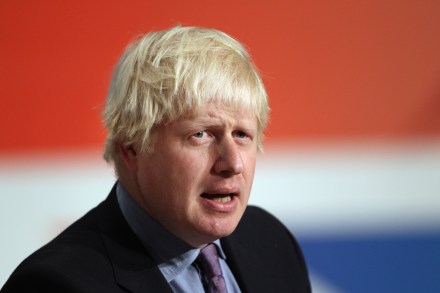Boris: George knows I’m right
David Cameron and George Osborne must have hoped that their message from Davos today would be broadcast unimpeded. It is, after all, a blunt message, designed to smash through all the radio chatter: we must continue with deficit reduction, there is no alternative, etc. But, inconveniently for them, there are other voices saying what we must do – among them Boris Johnson. The Mayor of London’s interview with the Telegraph is at once typical and quite intriguing. Typical, because he holds aloft the same standards as always. “I understand 50p tax politically,” he says, “but there has got to be a sense of where we are going and where we


















